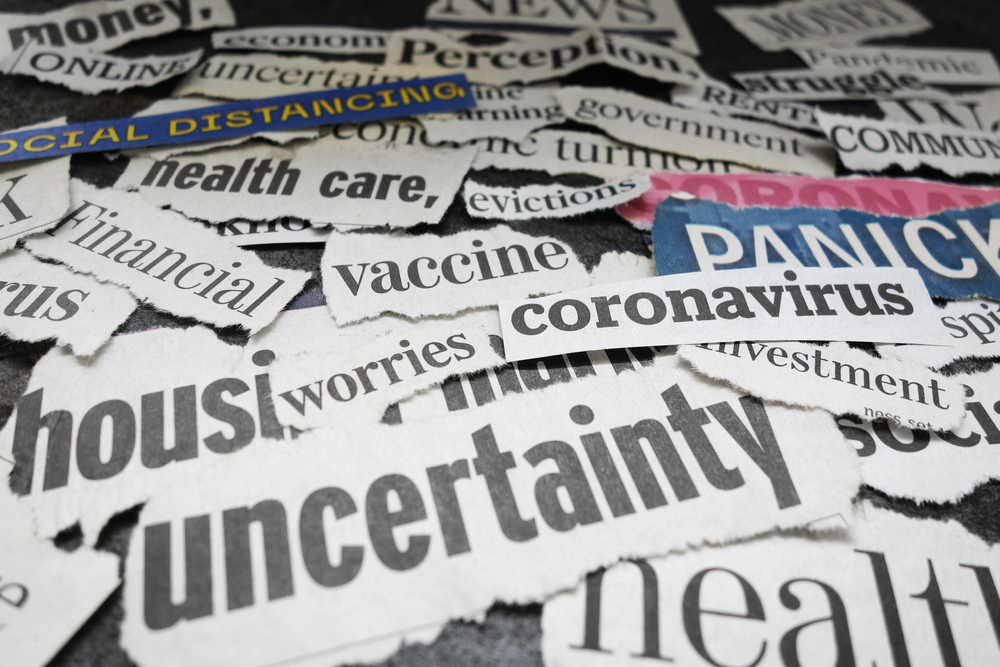“The greatest glory in living lies not in never falling, but in rising every time we fall.”
Nelson Mandela
Since March 2020 I’ve felt like I’ve been in a boxing ring and my resilience has really been tested with plenty of punches. I know I’m not the only one and we have all been challenged in some way, enveloped by the COVID-19 pandemic, job instability, loss of family or friends, working from home, burn out, lockdown, not been able to travel, depressing global news stories and then there’s uncertainty of what’s next.
It seems relentless and just as we see light at the end of the tunnel, it goes dark again. The disruption has been stressful but just like a rubber band, we’ve also been able to bounce back. Maybe not always in exactly the same shape but we have recovered in some way.
The science of resilience is around our ability and strategies to cope and adapt in adversity, so we can then function the same as we were before. It starts from within – our thoughts, actions and behaviours – and it’s a set of skills which can be developed. Although resilience starts with the internal aspects of how we are influenced (by personal factors and individual characteristics), it’s also shaped throughout our lives through an accumulation of experiences and interactions between people, the environment, situations and life experiences. We all have some degree of resilience and it’s our collection of positive and negative experiences which affects how our level of resilience is shaped.
There are many studies on learning resilience, and I’d like you to imagine resilience as a muscle which you can grow at any age. Some people will have stronger muscles than others but over time, with exercise and practice, they can be further developed. Resilience is the same, except there is no, one magic formula as we all learn, respond and react differently.
There’s no doubt that our resilience thresholds are really tested when there is disruption, trauma, uncertainty, stress, fear, anxiety, fatigue, isolation and loss. These experiences can have a profound, accumulative effect on our general level of wellbeing including our physical and mental health levels. So, building our resilience tool kit is important for our wellbeing and mental health.
Dr Tedros Adhanom Ghebreyesus, Director-General of the World Health Organization said in 2020, “Good mental health is absolutely fundamental to overall health and well-being”.
Asia is the largest continent in the world and according to Statista, the Asia Pacific region accounts for over 50% of the global population that’s 4.59 billion people. An online survey they conducted in Asia between April and July 2020 found that both men and women were equally affected by the outbreak of COVID-19.
According to a WHO survey of 130 countries conducted from June-Aug 2020, “the COVID-19 pandemic has disrupted or halted critical mental health services in 93% of countries worldwide while the demand for mental health is increasing. Bereavement, isolation, loss of income and fear are triggering mental health conditions or exacerbating existing ones. Many people may be facing increased levels of alcohol and drug use, insomnia, and anxiety”.
In June 2020, The Asia Pacific Disaster Mental Health Network, supported by the World Health Organisation (WHO), was established to prepare and respond to disasters, pandemics, and mass trauma and to advance disaster-related mental health research, practice and policies in the region.
In the Asia Development Bank’s Outlook 2020 update, “Wellness in Worrying Times”, Chief Economist, Yasuyuki Sawada, writes “Physical and mental health is vital to post-pandemic recovery”. Some other key wellness related highlights from the report include:
- “COVID-19 underlines the importance of wellness, or the deliberate pursuit of activities that bring holistic health, happiness, and well-being. Public health, both physical and mental, has taken a beating during this pandemic. In Asia, as elsewhere, wellness can revive the human body, mind, and spirit, which are the first steps toward rebuilding the economy and society”.
- The pandemic spotlights both physical and mental wellness. ….. Meanwhile, pandemic-induced isolation, fear, uncertainty, and economic hardship are causing a lot of stress and anxiety around the world.
- Today, staying well while working from home is emerging as a new priority under widespread COVID-19 restrictions.
- The path to mental well-being is self-managed and evidence based. Poor mental health—evidenced by depression, is the third-biggest cause of years lost to disability, after lower-back pain and headache. Yet many Asian economies have fewer than one mental health professional per 100,000 population.
In collaboration with Profile Asia and The Next Step, almost 2,500 respondents, working in organisations with employees in Asia Pacific ranging in size from under 200 to over 5,000 employees, were surveyed from October 2019 to January 2020 as part of the Working in Asia Pacific research study. We asked some questions around mental health and 45% agreed that it had an adverse effect on them, and 60% agreed that it has had an adverse effect on their colleagues.
The survey also revealed that COVID-19 has also made mental health more acceptable with an average of 57% feeling it was appropriate to discuss mental health issues with their manager. Interestingly, among the respondents, it was the non-managerial respondents with 80% finding it easier to talk to their colleagues about mental health. In the same survey, 55% of men and 63% of women feel more comfortable discussing mental health issues with colleagues. Fast forward to 2021 and mental welfare is at the top of every company’s list.
It’s fair to say that many people typically feel stress at work and during COVID-19 the feeling has been acceberated. Whilst we know a certain amount of stress is normal for everyday pressures and demands there have been plenty of articles around chronic stress being a silent killer, and how over a prolonged period stress can lead to mental health issues.
The Working in Asia research data probed into the effect of stress in the workforce. Interestingly Singapore reported the highest amount of stress, whilst in comparison Australia the lowest. Of the generations, X and Y felt the effects of stress the most.
Organisations can support employees by prioritising mental health through resililence educational training programmes. Afterall, Resilience is what gives us the psychological strength to cope with stress and hardship, and from an organisational perspective building resilience can assist with reducing stress, lowing absenteeism, increasing productivty and job satisfaction.
Whilst the world outlook is still ambiguous, what we can do is use this time to build our resilience skills and prioritise our personal wellbeing. As Dr Steve Maraboli, Behaviour scientist, and author of Life, The Truth and Being Free once said, “Life doesn’t get easier or more forgiving, we get stronger and more resilient.”
In 2014, Roffey Park Institute released a research paper on Building Resilience : 5 Key Capabilities which focuses on Perspective; Emotional Intelligence; Purpose, Values and Srengths; Connections; and Managing Physical Energy, which continues to be the core of our holsitic resilience programme.





